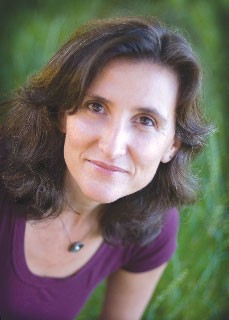A calling is personal. But it can make us reach outside ourselves in service to a greater value—say, earth advocacy. A calling is what got Rachel Carson to write Silent Spring, what got David Brower to turn the Sierra Club from an innocuous hiking club into a powerful advocacy organization, and what made Al Gore travel the world to share An Inconvenient Truth.
Not all callings are so clearly defined or so much in the public eye. Sometimes, finding ours can seem to take ages and may feel as if it eludes us at every turn. But according to Aninha Livingstone, a West Marin eco-psychologist, a true calling does not start out big or flashy but quietly and through a feeling, a thought or a message found in nature—something that grabs us.
“It’s whatever lights you up,” explains Livingstone, whose calling is helping others find theirs. But to pursue a calling takes a willingness to push through blocks and listen to the soul’s messages—not the social messages pressing us toward the draining or dramatic. “We don’t have to be on the Greenpeace boat,” says Livingstone. “Your role may be invisible to the rest of the world or it may be very visible, but the threshold of claiming our calling is the thing that makes us feel really alive.”
Finding a calling is finding something that has heart and meaning, and is not a left-brained shove to produce. “We get wrapped up in being productive,” Livingstone explains. “We often diminish ourselves when we aren’t doing or producing, but there is ‘doingness’ and there is ‘beingness.’ We all have qualities that feed the world, whether it’s compassion or courage or playfulness. Just by being ourselves we are already giving something.”
Paying attention to nature is a good way to find your calling, according to Livingstone. “We’re looking at the language of the soul, which speaks in symbols. Nature connects us to the core of the mystery of the calling,” she says. “I think [nature] creates our calling as much as it would create an oak out of an acorn.”
A key aspect of a calling is that it is not static. “We are given an image or an impulse, something to start with,” says Livingstone. “And then we need to respond. Then we’re given another call, growing a little piece here and there. Much of life is process, and I don’t think the soul ever likes to be pinned down.”
Seeking your calling? Take a hike—with eyes and heart open for your clue.











